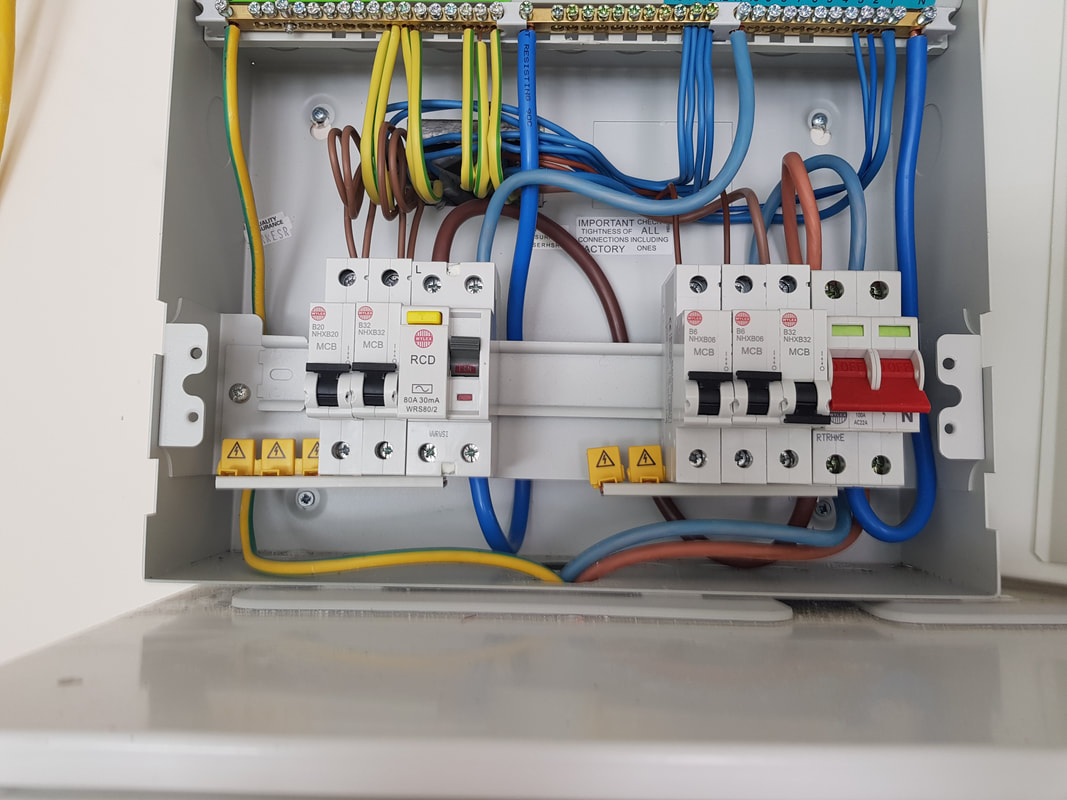Expert BRE Electrical Melbourne Services for Your Electrical Jobs
Expert BRE Electrical Melbourne Services for Your Electrical Jobs
Blog Article
Debunking Electric Installation: Comprehending Codes and Regulations for a Legal and Safe Configuration
In the world of electric installation, adherence to codes and policies is extremely important to guarantee both legality and security. The intricacies surrounding electrical job can be challenging, yet familiarizing oneself with the established requirements is vital to navigating this field with self-confidence. By understanding the details of the National Electric Code and local building codes, people can ensure that their installations fulfill needed safety actions and remain in conformity with the legislation. Nonetheless, the journey to demystifying electrical setup goes past mere experience with policies; it necessitates an extensive grasp of just how to apply secure electrical methods successfully.
Significance of Electrical Codes
The adherence to electric codes is crucial in making sure the security and reliability of electric installations. Electric codes function as a set of requirements and standards that dictate the correct layout, installation, and maintenance of electrical systems. These codes are established to decrease the threat of electrical risks, fires, and other security concerns that might arise from malfunctioning electric work.

Moreover, electrical codes are frequently upgraded to include new modern technologies, ideal techniques, and precaution. Staying updated with these codes is vital for experts in the electric industry to make certain that their job satisfies the current security criteria. Inevitably, the relevance of electrical codes depends on creating a protected and effective electrical facilities that benefits both people and neighborhoods.
Key Regulations for Safety And Security
Numerous basic guidelines regulate the safety criteria in electrical setups. One essential regulation is the National Electric Code (NEC), which offers guidelines for secure electric layout, installment, and inspection to protect individuals and building from electric hazards. The NEC covers aspects such as circuitry techniques, grounding, overcurrent defense, and tools installation to guarantee a secure electrical system.
Another vital guideline is the Occupational Safety and Health And Wellness Administration (OSHA) criteria, which concentrate on the safety and security of employees involved in electrical setups (BRE Services). OSHA laws consist of demands for proper training, safety treatments, and individual protective devices to avoid office accidents and injuries
Moreover, the International Electrotechnical Commission (IEC) criteria intend to integrate electric setup laws on an international range. These requirements address problems like electrical equipment safety, electro-magnetic compatibility, and power efficiency to advertise uniformity and security in electrical installments worldwide.
Conformity with these vital laws is necessary to make certain the safety and legality of electrical installments, securing both individuals and residential or commercial property from the risks linked with electrical energy.
Comprehending National Electric Code
Trick laws such as the National Electrical Code (NEC) provide necessary standards for secure electrical style, installation, and evaluation to make sure the defense of individuals and residential or commercial property from electrical threats. The NEC, additionally called NFPA 70, is a detailed collection of requirements for electrical installments that are upgraded every three years. It is established by the National Fire Security Association (NFPA) and is extensively taken on throughout the USA.
The NEC covers various facets of electric work, including electrical wiring techniques, grounding, overcurrent defense, and devices setup. It aims to guard people and property by attending to prospective risks related to electrical systems. Conformity with the NEC is generally imposed by regional authorities having jurisdiction (AHJs), such as constructing code officials and inspectors.
Understanding the NEC is important for electrical professionals, designers, and assessors to make certain that installments meet the required safety requirements. By look at here adhering to the NEC guidelines, professionals can help prevent electric crashes and make sure the dependability of electrical systems in domestic, industrial, and commercial settings.

Conformity With Neighborhood Building Ordinance
Understanding and sticking to regional building codes is official website crucial for ensuring the security and compliance of electrical installations within a specific territory. These codes describe particular needs for electrical installations, such as the type of circuitry to be utilized, positioning of outlets, basing techniques, and tons capabilities.
When it comes to electrical setups, failing to comply with neighborhood structure codes can result in severe consequences. Non-compliant setups might position security risks, boost the risk of electrical fires, and lead to pricey penalties or lawful problems. Additionally, insurance coverage companies might decline to cover damages resulting from installments that do not meet local building regulations needs. It is critical for electricians and service providers to stay notified about and strictly adhere to the local structure codes applicable to their projects.
Ensuring Safe Electrical Practices
Practicing stringent adherence to established safety procedures is important in the area of electrical installations to alleviate potential threats and make certain the health of people and properties. Security in electric work includes different facets, beginning with the appropriate training of personnel involved in installment, maintenance, and fixing. It is vital to follow maker directions diligently when managing electrical elements and devices. Prior to beginning any kind of work, it is necessary to carry out an extensive risk analysis to determine potential threats and implement preventive measures. Using individual safety equipment (PPE) such as shielded gloves, security glasses, and non-conductive footwear is non-negotiable to protect resource versus electrical shocks and arc flashes. Regular tools assessments, testing, and maintenance schedules are vital to spot and fix mistakes before they intensify right into safety and security hazards. Furthermore, adherence to proper lockout-tagout procedures throughout maintenance activities is essential to avoid unintended energization of circuits. By focusing on secure techniques, electric setups can function efficiently while decreasing the possibility of accidents or damages.
Verdict
To conclude, adherence to electric codes and laws is critical for making certain the safety and security and legality of electrical installations. Understanding the National Electric Code and conformity with local structure codes are important for a secure arrangement. By following these standards and practicing risk-free electric techniques, individuals can avoid possible hazards and make certain the appropriate functioning of their electrical systems.
Report this page